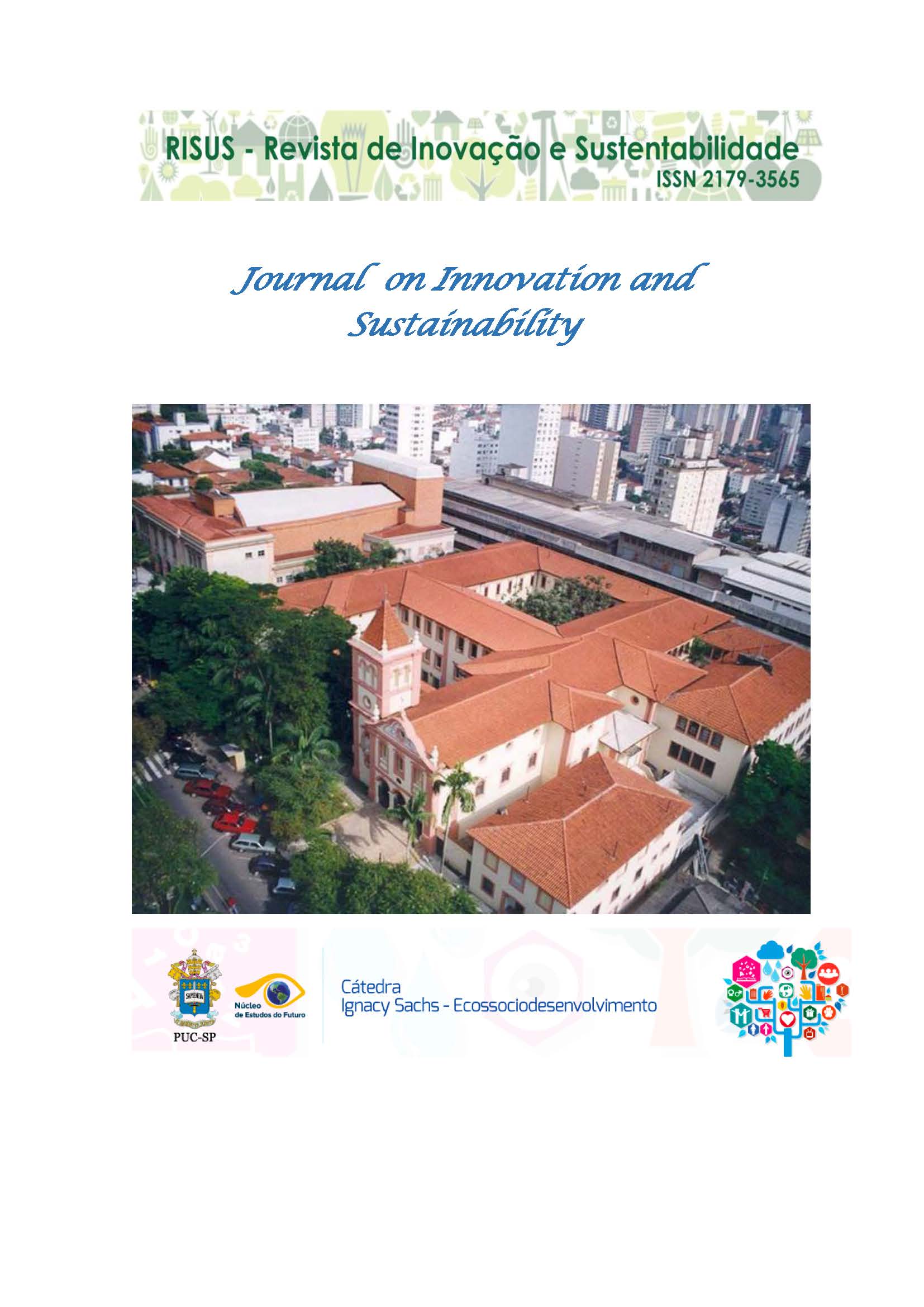O impacto do Covid-19 na situação econômica do Paquistão
uma história de perdedores e vencedores
DOI:
https://doi.org/10.23925/2179-3565.2022v13i3p190-208Palavras-chave:
nova norma, transição, economia digitalResumo
A COVID-19 foi declarada pandemia sem tratamento aparente desse vírus no final de 2019. Foi recomendado observar o distanciamento social, colocar em quarentena o paciente infectado e seguir boas práticas de higiene. Além disso, algumas estratégias foram adotadas para controlar a disseminação do COVID-19, incluindo distanciamento social, uso de máscaras faciais, bloqueio forçado e fechamento de fronteiras. Muitos países em desenvolvimento, como o Paquistão, estão enfrentando graves crises e recessão econômica. A maioria das pessoas afetadas por essa pandemia são mulheres, crianças, idosos e pessoas com deficiências imunológicas. O zoom se tornou a contraparte da vida durante essa pandemia porque as pessoas o usam para trabalho, educação e socialização. Essa pandemia resultou em altos ganhos no setor de TI. O tamanho do mercado de comércio eletrônico do Paquistão testemunhou um novo recorde. O crescimento do tamanho do mercado de e-commerce e mobile banking aumentou rapidamente. Além disso, o governo pode ajudar na transição dos negócios para o modo online, o que pode ajudar a manter os empregos e a estabilidade do crescimento econômico.
Referências
Ali, A., Ahmed, M., & Hassan, N. Socioeconomic impact of COVID‐19 pandemic: Evidence from rural mountain community in Pakistan. Journal of Public Affairs, e2355, 2020.
Arshed, N., Meo, M. S., & Farooq, F. Empirical assessment of government policies and flattening of the COVID 19 curve. Journal of Public Affairs, 20(4), e2333, 2020.
Asghar, N., Batool, M., Farooq, F., & Rehman, H. COVID-19 Pandemic and Pakistan Economy: A Preliminary Survey. Review of Economics and Development Studies, 6(2), 447-459, 2020.
Aslam, P. Extreme Commerce. Retrieved from Extreme Commerce: https://ec.com.pk/blog/pakistan-approved-for-selling-on-amazon, June 20, 2021.
Business Recorder. Zoom earnings strong at close of pandamic plagued year. Retrieved from Business Recorder: https://www.brecorder.com/news/40069367/zoom-earnings-strong-at-close-of-pandemic-plagued-year, 2021, March 17
Chowdhury, A. Z., & Jomo, K. Responding to the COVID 19 Pandemic in Developing Countries:Lessons from Selected Countries of the Global South. Development(63), 162–171, 2020.
CNBC. Amazon earnings in Q4 2020. Retrieved from CNBC: https://www.cnbc.com/2021/02/02/amazon-amzn-earnings-q4-2020.html, Feb 2, 2021.
EcommerceDB. EcommerceDB. Retrieved from EcommerceDB: https://ecommercedb.com/en/ranking/pk/food-beverages, March 17, 2021.
Ghaffar, A., Munir, M., Aziz, O., Alhajj, R., & Sanaullah, A. COVID 19 Incidence Curve: Intelligent Smart Approach Instead of Lockdown. Empirical Economic Review, 3(2), 31–61, 2020.
Helmore, E. The Guardians. Retrieved from The Guardians:
https://www.theguardian.com/technology/2020/oct/29/amazon-profits-latest-earnings-report-third-quarter-pandemic, Oct. 29, 2020.
Jaffery, R. Pakistan struggles to fight COVID-19. The Diplomat, 15 April 2020. https://thediplomat.com/2020/04/pakistanstruggles-to-fight-COVID-19, 2020.
Kalb, G., & Mekees, J. Changing Labour Force Status:COVID-19 Impacts by Gender and Age. Coping with COVID-19: Rethinking Australia, 2020.
Khalid, A., & Ali, S. COVID-19 and its Challenges for the Healthcare System in Pakistan. Asian bioethics review, 12(4), 551-564, 2020.
Liu, S. Statista. Retrieved from Statista: https://www.statista.com/statistics/1106104/stock-price-zoom/, April 1, 2021.
Mamoon, M., & Ullah, I. COVID-19 suicides in Pakistan, dying off not COVID-19 fear but poverty? – The forthcoming economic challenges for a developing country. Brain Behav Immun, 87, 163–166, 2020.
Ministry of Finance. Retrieved from Ministry of Finance: http://www.finance.gov.pk/, June 21, 2021.
National Institue of health. Retrieved from National Institute of health: https://www.nih.org.pk/, March 16, 2020.
OECD. E-Commerce in the time of COVID-19. Retrieved from OECD: http://www.oecd.org/coronavirus/policy-responses/e-commerce-in-the-time-of-COVID-19-3a2b78e8/, March 16, 2020.
Pakistan Bureau of Statistics, Government of Pakistan. Retrieved from Pakistan Bureau of Statistics: https://www.pbs.gov.pk/, January 29, 2020.
Poverty Alleviation and Social Safety Division. Retrieved from Poverty Alleviation and Social Safety Division (Government of Pakistan): https://www.pass.gov.pk/Detail845ae76f-4161-4d46-8452-ab8805d1f953, January 23, 2021.
Rabbani, F., Khan, H. A., Piryani, S., Khan, A. R., & Abid, F. Psychological and social impact of COVID-19 in Pakistan: Need for Gender Responsive Policies. medRxiv, 2020.
SBP. The State of Pakistan's Economy, First Quarterly Report of Board of Directors. State Bank of Pakistan. Retrieved from https://www.sbp.org.pk/reports/quarterly/fy21/First/Complete.pdf, 2021.
Shafi, M., Liu, J., & Ren, W. Impact of COVID-19 pandemic on micro, small, and medium-sized Enterprises operating in Pakistan. Research in Globalization, 2, 100018, 2020.
Shaukat, N., Ali, D. M., & Razzak, J. Physical and mental health impacts of COVID-19 on healthcare workers: A scoping review. International Journal of Emergency Medicine, 13(1), 1-8, 2020.
Specialized Healthcare and Medical Department. Retrieved from https://health.punjab.gov.pk/, 2020.
State Bank of Pakistan. Retrieved from www.sbp.gov.pk, January, 2021.
UNCTAD. Impact of the Pandemic on Trade and Development. United Nations Conference On Trade And Development. New York: United Nations Conference On Trade And Development 2020.
World Health Organization. Retrieved from WHO: https://COVID19.who.int/, January 17, 2021.
Yasmeen, S., & Sohail, H. Economics of COVID-19: A case of Punjab, Pakistan. Empirical Economic Review, 3(2), 10-30. Retrieved from https://ojs.umt.edu.pk/index.php/eer/article/view/464, 2020.
Zia, S. Infection to Recovery; COVID-19 in Pakistan and. Experimental Results, 32(2), 1-4, 2020.

Downloads
Publicado
Edição
Seção
Licença
Esta obra está licenciada sob uma licença Creative Commons Atribuição - No comercial - Sin derivaciones 4.0 Internacional
1.O(s) autor(es) autoriza(m) a publicação do artigo na revista;
2.O(s) autor(es) garante(m) que a contribuição é original e inédita e que não está em processo de avaliação em outra(s) revista(s);
3.A revista não se responsabiliza pelas opiniões, ideias e conceitos emitidos nos textos, por serem de inteira responsabilidade de seu(s) autor(es);
4.É reservado aos editores o direito de proceder ajustes textuais e de adequação do artigos às normas da publicação.
1.1 Copyright Statement
This journal is licensed under a Creative Commons Attribution-Non Commercial-No Derivers 4.0 International license.
1. The author (s) authorize the publication of the article in the journal;
2. The author (s) warrant that the contribution is original and unpublished and is not in the process of being evaluated in other journal (s);
3. The journal is not responsible for the opinions, ideas and concepts emitted in the texts, as they are the sole responsibility of its author (s);
4. The editors are entitled to make textual adjustments and to adapt the articles to the standards of publication.

